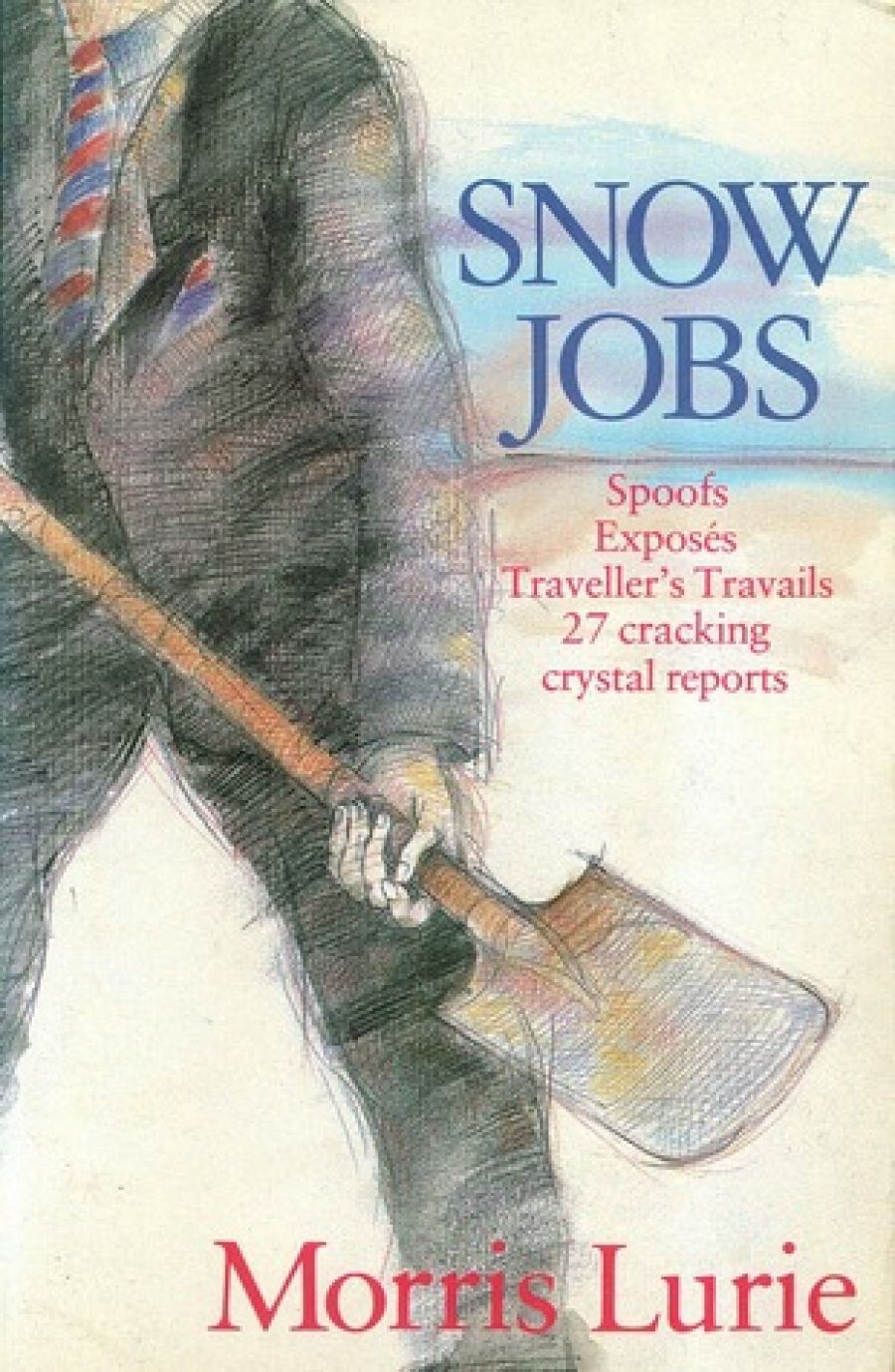
- Free Article: No
- Contents Category: Journalism
- Review Article: Yes
- Online Only: No
- Custom Highlight Text:
Collections of a writer’s pieces of journalism are usually not well reviewed. The critic is often a journalist whose pieces have not been collected and there is something about the thought of a colleague’s being paid twice that rankles. If the pieces under review are travelogues and and adventures of an enjoyable kind, then the critical appetite for blood will be doubly whetted. The thought of a colleague’s being paid twice for doing what was enjoyable in the first place will sour the critic’s aspect to the extent that his review will be an example of someone’s being paid once for doing something they didn’t enjoy – an experience that some journalists will have you believe is a universal one. (Of course, when their turn comes and a book of their critical pieces is published they go around the place becoming abashedly like a pregnant ex-nun.)
- Book 1 Title: Snow Jobs
- Book 1 Biblio: Pascoe Publishing, 143 pp, $8.95
One concrete reason for the generally poor reception accorded prose collections is the difficulty the structure poses. The jumps from New York to a Lotto draw in Melbourne and then off somewhere else can be irritating to the reader if the book is content-oriented. Morris Lurie, however, is a stylist and suffers few of the problems usually present in content-oriented collections. Every piece in the book, including the third-person blurb on the back cover, is written in the same distinctive, sensuous style. The content is just there, like the boards of a stage, as a support for the Lurie display. For the record, the pieces touch on a flamboyant millionaire’s mansion, a recently completed medieval castle, jazz, New York, Writing, Bees, Possessions, Friendship, etc. All the subjects are swathed in a style that is readable, funny and mostly satisfying to the reader.
The sensuousness us always present, as is the threat of blackness and misanthropy, although here the author hasn’t got the killer instinct to go on with it. The selection of detail is surprisingly austere, but it works, and scene after scene comes alive, from greasy public barbecue pits to rarefied New York book-stores. The one-line paragraph technique is a bit boring, as the author’s timing is not great, and occasionally I longed for a bit of rational thought among all the manic escapades, but overall the style works beautifully and the lapses (‘or whatever’, ‘I haven’t the faintest idea’) are rare.
Whether Lurie is describing his night in a Japanese capsule hotel or musing over a book of photographs of Jews in Europe, the tone of the book is consistent throughout. Go ahead and panic, says the author, you’re only one step ahead of the Reaper. What else is surprisingly consistent is the fact there are so few duds in twenty seven efforts.
One story had me flabbergasted, however. It was about Burt Britton, a bookseller.
He worked at a store called Books and Co.
Then he moved to another store.
And what is it called?
That’s right.
Books and Co.
According to Lurie, both stores are called Books and Co. Not even Books and Co. I and Books and Co. II. Both stores are called Books and Co. The reader is left to fend for himself. And suspect that the author has made a careless mistake. Or the proof reader. Either way, you don’t know which store is being referred to.


Comments powered by CComment